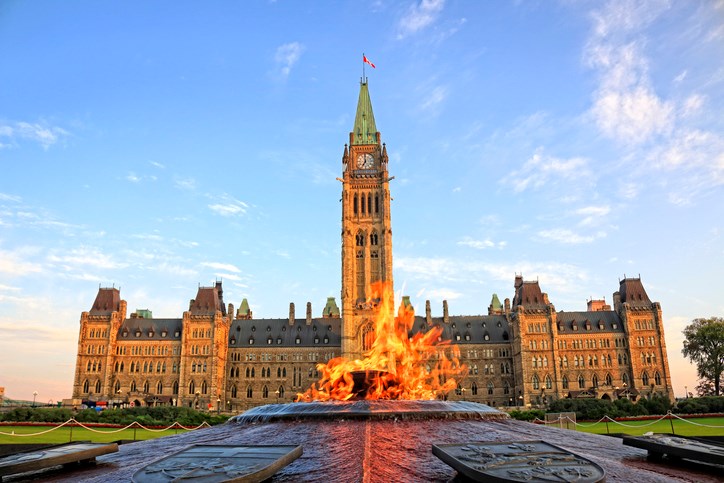Last week, Research Co. and Glacier Media asked a series of questions about the pandemic for perhaps the last time.
The 15 surveys we have conducted over the past two years outline how our attitudes have varied. In March 2020, 72 per cent of Canadians told us that the worst of COVID-19 was “ahead of us.” Two years later, 72 per cent believe the worst is “behind us.”
This does not mean that Canadians are no longer interested in the pandemic. We continue to see more than four in five (81 per cent) considering COVID-19 as a real threat. We have gone through the roller-coaster of variants and dealt with “vaccine passports” and indoor mandates.
Our question on personal habits shows that more than two-thirds of Canadians (68 per cent) are still wearing a mask every time they go out. As has been the case throughout the pandemic, those aged 55 and over are more likely to be observing caution (76 per cent) than their counterparts aged 35 to 54 (66 per cent) and aged 18 to 34 (60 per cent).
At a time when most Canadians are fully vaccinated, we can take a look back at the way administrations and health authorities dealt with the pandemic. This month, the federal government posts a satisfaction rating of 61 per cent among Canadians, up five points since January. This is lower than the levels observed in the first six months of 2020, when Prime Minister Justin Trudeau was a fixture in Canadian televisions, addressing the media from a socially distanced podium outside of his home.
The ratings for other levels of government have been consistent. A majority of Canadians (56 per cent down one point) are satisfied with the way municipal administrations are handling COVID-19. The longitudinal analysis of provincial governments provides a unique opportunity to see who connected well and who tried but failed.
This month, 63 per cent of British Columbians are happy with how COVID-19 has been managed by their provincial government. This is a good number when compared to other jurisdictions, but way below the 80 per cent posted in June and September 2020, when the election that gave the governing BC New Democratic Party (NDP) a full four-year term was called.
Quebec’s government also enjoys a 63 per cent satisfaction rating this month, up eight points since January. This represents a strong recovery in a province where voters will cast ballots later this year and where 12 of 15 surveys conducted over a two-year period resulted in a rating higher than 60 per cent. Quebec’s consideration of a tax on unvaccinated adults was not well received. The numbers have bounced back, and any damage from this decision does not appear to be permanent.
In Ontario, where an election will also take place this year, the numbers were strong for most of 2020, but dropped below 50 per cent twice, in March and May 2021. This month, 57 per cent of Ontarians approve of the government’s management of COVID-19, up six points since January and the highest proportion observed since November 2020. This might be a case of a government peaking at the right time, and with some weeks still ahead to reconnect with the population on matters unrelated to the pandemic.
In Alberta, where the incumbent party has been overtaken by the opposition, 37 per cent of residents approve of the provincial government’s management of the pandemic. We asked this question 15 times across Canada since March 2020, and Alberta only cleared the 50 per cent threshold the first five times. In September 2021, just weeks removed from the premier’s promise of the “best summer ever,” only 26 per cent of Albertans approved of the way COVID-19 was being handled.
Alberta provides a cautionary tale in the type of role that heads of government can take during a crisis. Satisfaction ratings have usually been lower in Alberta than in the three provinces where most of the pandemic news – good or bad – were delivered by the people in charge of the provincial health authorities.
When we asked Canadians about the performance of their provincial health officer or chief medical officer, the numbers are satisfactory in British Columbia (63 per cent) Quebec (also 63 per cent), Ontario (61 per cent) and Alberta (53 per cent). The rating for the federal chief public health officer across the country is also high (63 per cent). The 16-point deficit in the way Albertans perceive pandemic management from Premier Jason Kenney and chief medical officer Deena Hinshaw is not seen on any other jurisdiction.
The pandemic presented a chance for elected officials to connect with constituents. The federal government tried to capitalize on this goodwill through an early election and got roughly the same result as in the previous democratic process. Quebec and Ontario will see voters heading to the ballot box with no mask mandates and with a feeling that, for the most part, the crisis was handled well. In Alberta, the current numbers do not suggest that the public is happy with the past or present of the pandemic, and the animosity towards the premier persists.
Mario Canseco is president of Research Co.
Results are based on an online study conducted from March 14 to March 16, 2022, among 1,000 adults in Canada. The data has been statistically weighted according to Canadian census figures for age, gender and region. The margin of error, which measures sample variability, is plus or minus 3.1 percentage points, 19 times out of 20.





